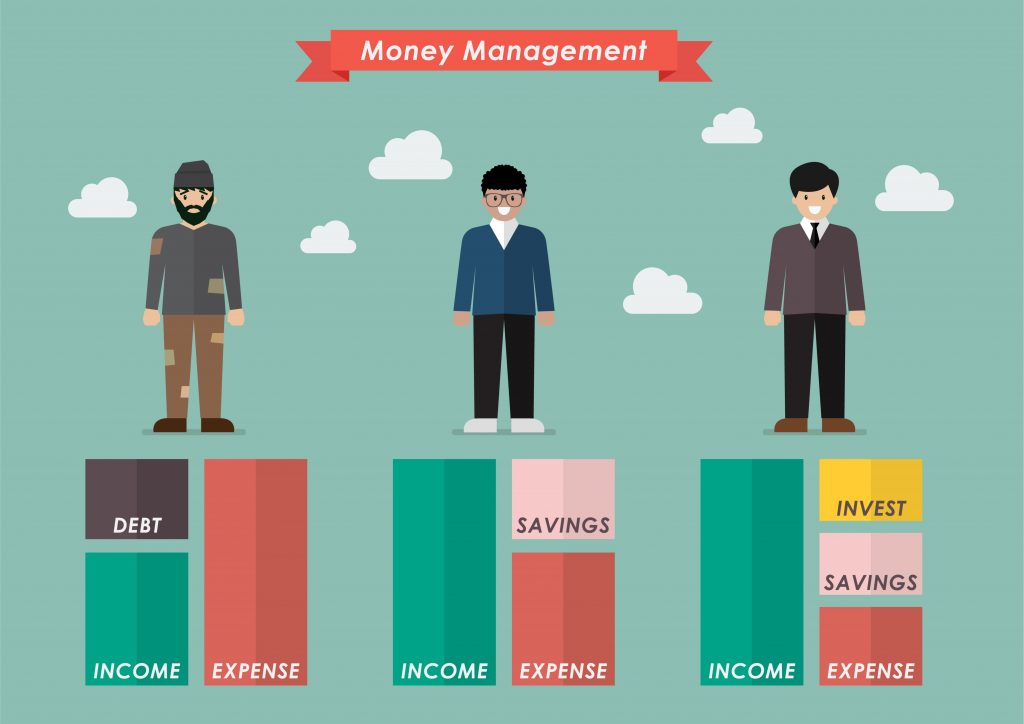- Respect money and be indifferent towards it?
- Being self aware and understanding where money comes from?
The 3 basic Laws of Money:
1.Acquire money = Live on less than I earn. Regardless of my job and position at a minimum I must be paying myself (10% and or more) of what I earn first. Develop automatic savings plans!! Identify goals for future investments and rainy-day funds.
2.Keep it = The purpose of a budget is to control the expenses and grow our net worth. Clearly decide what are necessary expenses and desires. Accept responsibility and take a hands-on approach by not frivolously spending your money and consistently choosing poor investment options that lose your principal and pay no dividends.
Seek advice from experts only. However, I don’t recommend other people spending your money on things you don’t understand. I encourage you to make wealth a habit of study. The more you learn you can and will prosper.
Insurance = would it be wise to protect ourselves from unexpected tragedies?
3.Use it = What I save must also earn. Develop the “Investor Mentality” towards tangible assets.
Is money the root of all evil? I believe money isn’t the root of all evil, it would be lack of money. Because lack of money causes health and relationships problems, and a poverty-crime connection. For example; worry, stress, anxiety and ultimately our PEACE of mind. We will only feel completely free when we’re not pre-occupied with money?
I recommend making financial independence a goal, because a feeling of financial freedom assists in the development of our important goals?
For honest self-assessment;
- Why do I want more money? Do I need it to feel important?
- Do I really need more money to be free?
- What do I need to be doing more of, or less of?
To your better future,
Dave







 Dave Barrie
Dave Barrie April 6, 2019
April 6, 2019 